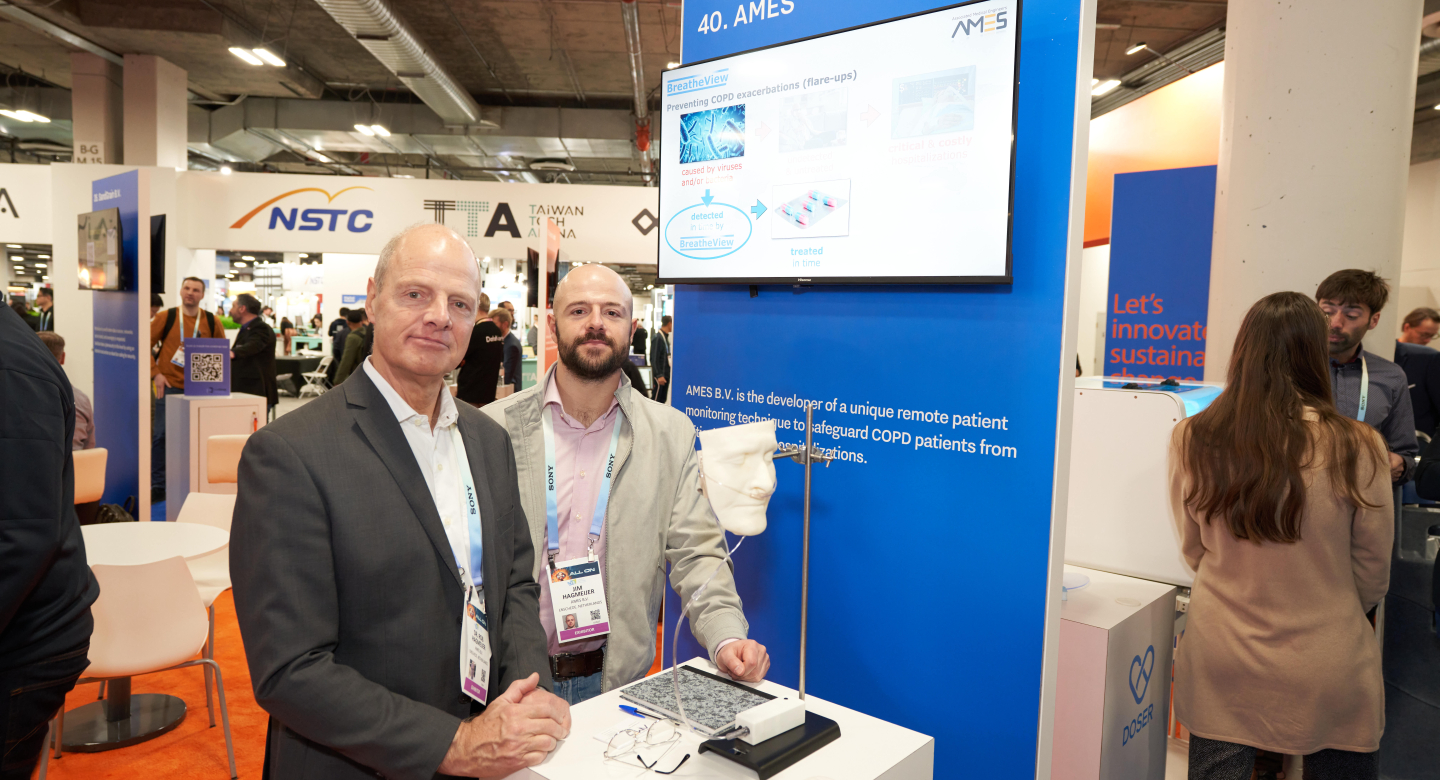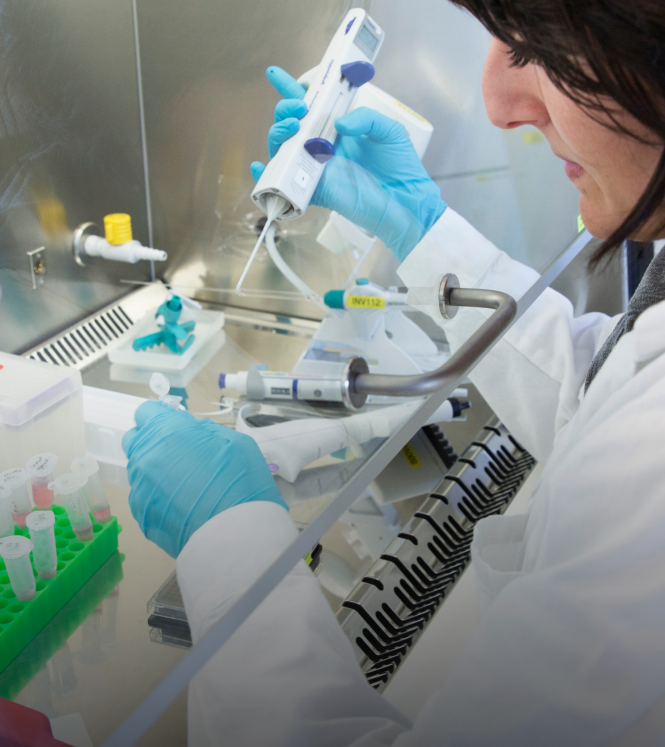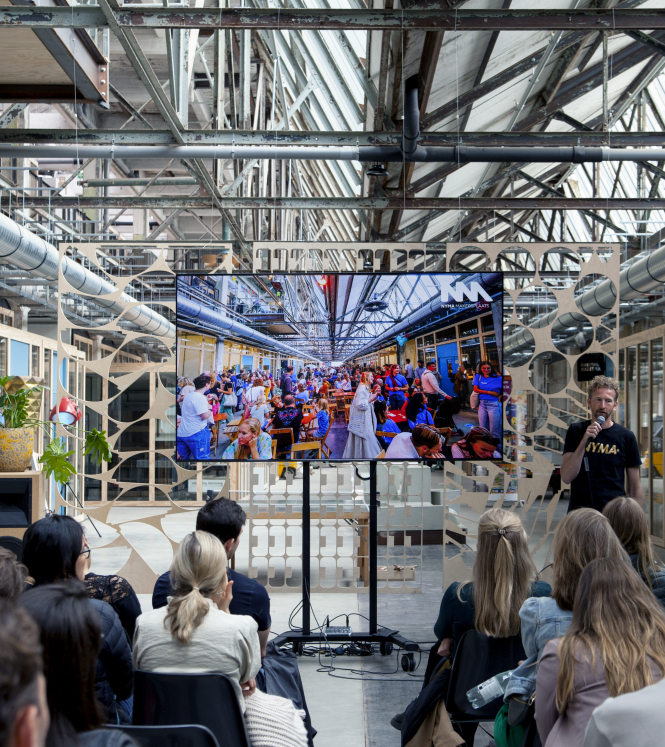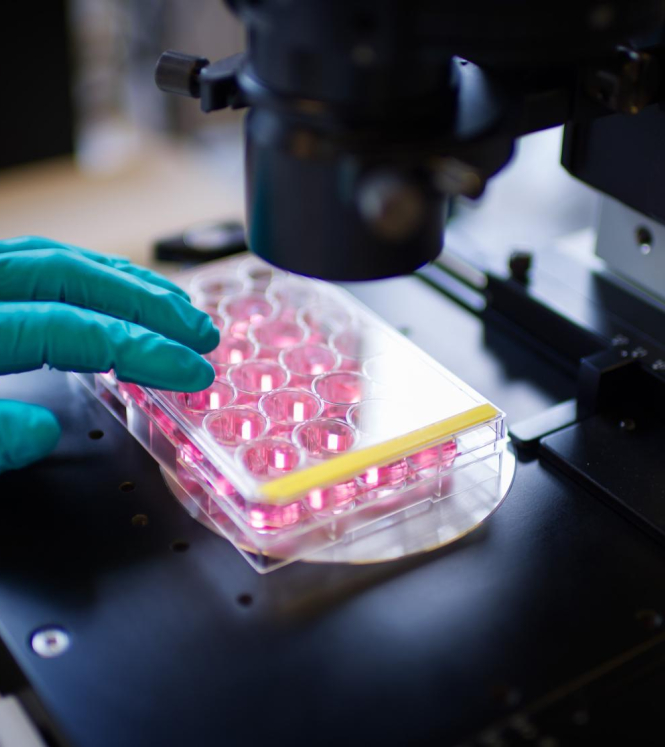

Breathe easy with this innovative start-up
In a fascinating twist, an aeronautical engineer delves into the intricate flows of the human body, leading to the birth of a groundbreaking medtech startup. Discover the story behind AMES and how their unique approach is simplifying health monitoring for Chronic Obstructive Pulmonary Disease (COPD) patients, potentially reshaping the future of at-home healthcare.
Meet AMES
Dr. Rob Hagmeijer is an associate professor at the University of Twente in the Engineering Fluid Dynamics group, he is also a cofounder of the medtech startup AMES, together with dr. Dennis van Putten. The obvious first question is How does an engineer end up in representing a med-tech startup? Dr. Hagmeijer laughed as he said “I’m an aeronautical engineer, not someone you would expect to be dealing with healthcare.” He goes on to explain “The flows in the lungs and arteries, are just like the flows we study in aerodynamics. It was, I think in 2015 that I became interested in the flows in the human body.”
We have hit the crux of what AMES is all about, which is taking something that seems wholly complicated, like the relationship between aerodynamics and the lungs, and making it simple – it all comes down to flows. Making it simple and accessible is what AMES is aiming to accomplish with their unique remote patient-monitoring technique to safeguard COPD (Chronic Obstructive Pulmonary Disease) patients from potentially life-threatening and costly hospitalisations. COPD patients often don’t know that their lungs have been compromised until severe symptoms begin.
A simple solution to a complex problem
There are 30,000 hospitalisations each year in the Netherlands that are results of lung attacks. Patients see setbacks in their health, and it costs the hospital system resources and funding. If these attacks can be preempted, doctors can provide the patients with treatment before hospitalisation is necessary. As Dr. Hagmeijer explains it:
“I got a little research grant on doing research on ventilation techniques, for small children that have pneumonia or other lung related illnesses.
At the time, the doctors were using so-called high-flow machines, and were having trouble installing and adjusting the settings. They asked us to help out. . And then by accident I discovered that if you put a little tube in the nose, the same tube was then used for the machine, but if you just put the tube in the nose without the machine and you put a pressure sensor at the end of the tube, you measure something fluctuating and I thought, hey, that is the breathing pattern. That all started it.
And knowing that you then measure the pressure, we had to invent something to translate the pressure signal into a flow signal. How much air is flowing through the nose. Compared to spirometry, the standard lung test that every lung patient hates, it's nothing, you know. You put these little tubes in your nose and you breathe for two minutes. The device sends the data to a server from then on the patient can see communications regarding their data through a secure app. That's it. ”
This new device is for patients to use regularly at home, on their own. The data collected from the individual devices will be monitored by the patients care giver. This way, they are able to catch disruptions in lung wellness early, and provide care to the patient. Maybe even without them having to ever set foot in a doctor’s office.
AMES started clinical trials in the Netherlands in March 2023. Due to the nature of lung related illnesses, they expect to collect most of the relevant data during these winter months. So far 60 devices have been provided to hospitals and 30 are in use.

Forging a path to growth
The Netherlands is proud to offer start-ups an extensive ecosystem to flourish, explore and experiment in the pursuit of solving global challenges. AMES is a start-up that exemplifies this, and has benefited from this ethos. Dr. Hagmeijer credits Novel-T, an accelerator program, at the University of Twente with providing the AMES team with crucial support in developing a business plan. As he admitted “We [the AMES team] are not business people, I'm an engineer, I'm not a businessman in principle. So you need help and you need confidence, you need to know where to go.”
One of the places they decided to go was CES 2024 where they aimed to expand awareness of their product at build an international network that could lead to international clinical trials. At CES, the AMES team expanded made new valuable contacts including with the COPD Foundation, medical device manufacturers, and investors.




